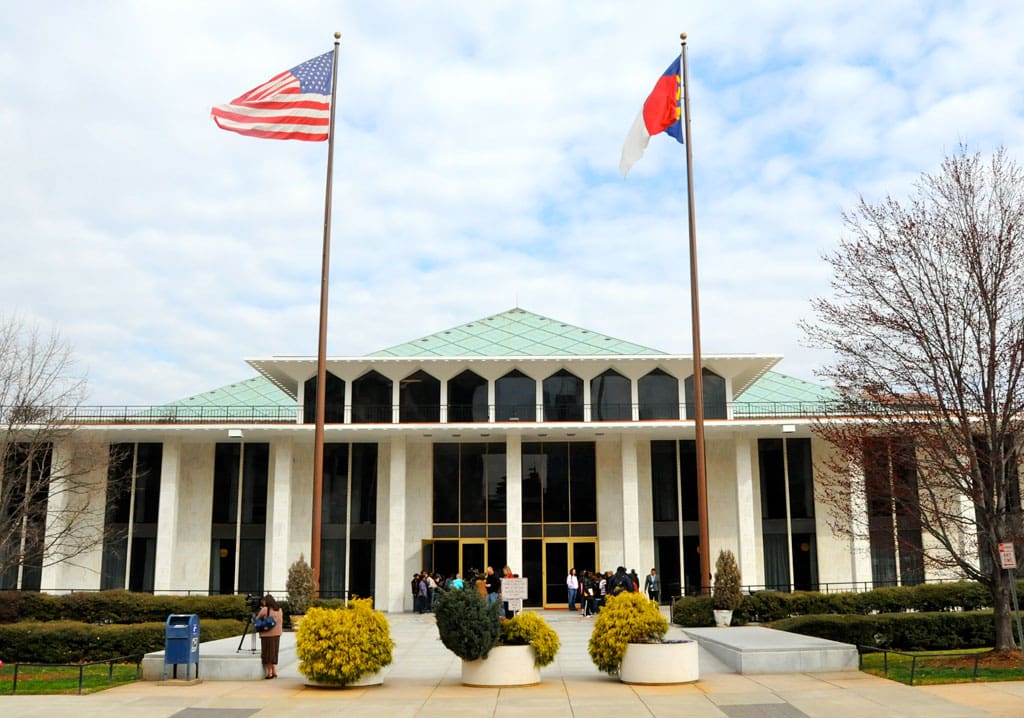
It’s that time of year again where I start wearing suits to work a lot more than I would prefer. I spent most of last Tuesday, Wednesday, and Thursday armed with our newly updated county profiles and our legislative asks, walking the halls of the General Assembly and talking to key legislators about the need to increase our state’s investment in affordable housing. The time is now to start talking to your elected officials about appropriations, but the political landscape has shifted this year, and there are two key pressure points that will make this a difficult session to navigate.
Political landscape
For the last two legislative sessions, both the House and the Senate have been led by Republican veto-proof majorities. The 2018 election changed this dynamic in both chambers. The Governor has indicated that expanding Medicaid is his No. 1 priority for the 2019 session, and N.C. Senate leader Phil Berger continues to state his opposition. There is some concern that the struggle over Medicaid may result in the General Assembly’s inability to pass a budget. While that unlikely scenario is far in the distance, it is one housing advocates must prepare for. In 2016, the General Assembly passed a law ensuring that in the inability to pass a budget, the state automatically reverts to a continuing resolution of only the recurring expenses in the previous biennium budget. For housing advocates, this means that should no budget pass, the Housing Trust Fund and the HOME match would continue, but the Workforce Housing Loan Program, the state’s largest housing investment, would not.
Fiscal Landscape
On Tuesday last week, the Fiscal Research Division presented the FY2019-2021 Consensus Revenue Forecast and State Budget Outlook to the Appropriations Committee. At first glance, the base budget numbers look like there will be balances of $572 million in 2019 and $1.39 billion in 2020 remaining after the base budget. However, if we take into account historical spending patterns of non-recurring expenses as well other anticipated budget pressures, the General Assembly only has about $180 million to increase different budget line items. This will make it difficult to increase any line item in the budget.
NC Housing Coalition Appropriations Ask
In spite of these pressures, the NC Housing Coalition is continuing to advocate for a significant increase in the state’s key housing investments. Our 2019 appropriations ask is:
- Increase the NC Housing Trust Fund to the pre-foreclosure crisis level of $20 million;
- Continue to fund the federal HOME Investment Partnership program match at $3 million;
- Increase the Workforce Housing Loan Program to $35 million, the 10-year average of the state’s expired housing credit, and make it a Recurring expense;
- Increase the allocation of federal Community Development Block Grant to the NC Commerce Department’s Neighborhood Revitalization program to $20 million; and
- Designate $50 million to housing recovery of the remaining $94 million already allocated for disaster recovery efforts.
While the first three priorities are goals that will require increased appropriation, it is crucial to note that the last two priorities require no new money. The CDBG-NR allocation builds upon a NC Housing Coalition legislative victory from 2017 that restored a portion of the state’s CDBG allocation to be used for housing. The final disaster recovery request designates moneys already appropriated in the Disaster Recovery Act passed during one of last year’s special sessions.
Take Action
At this stage in the legislative process, it is important that key elected officials are hearing about the importance of housing from their districts. Take some time to reach out to your NC House Members and Senators. Let them know about the housing needs in your community and how important these resources are to meeting those needs.

Highlighted Report: Fair Housing Project releases State of Fair Housing in NC
Discrimination based on race and disability account for the vast majority of housing discrimination complaints filed in North Carolina, according to a new report released last month by the Fair Housing Project of Legal Aid of North Carolina and authored by Jeff Dillman. The report, titled the State of Fair Housing In North Carolina, covers an 18-year period and 3,303 complaints. You can read more about the report on our website.








